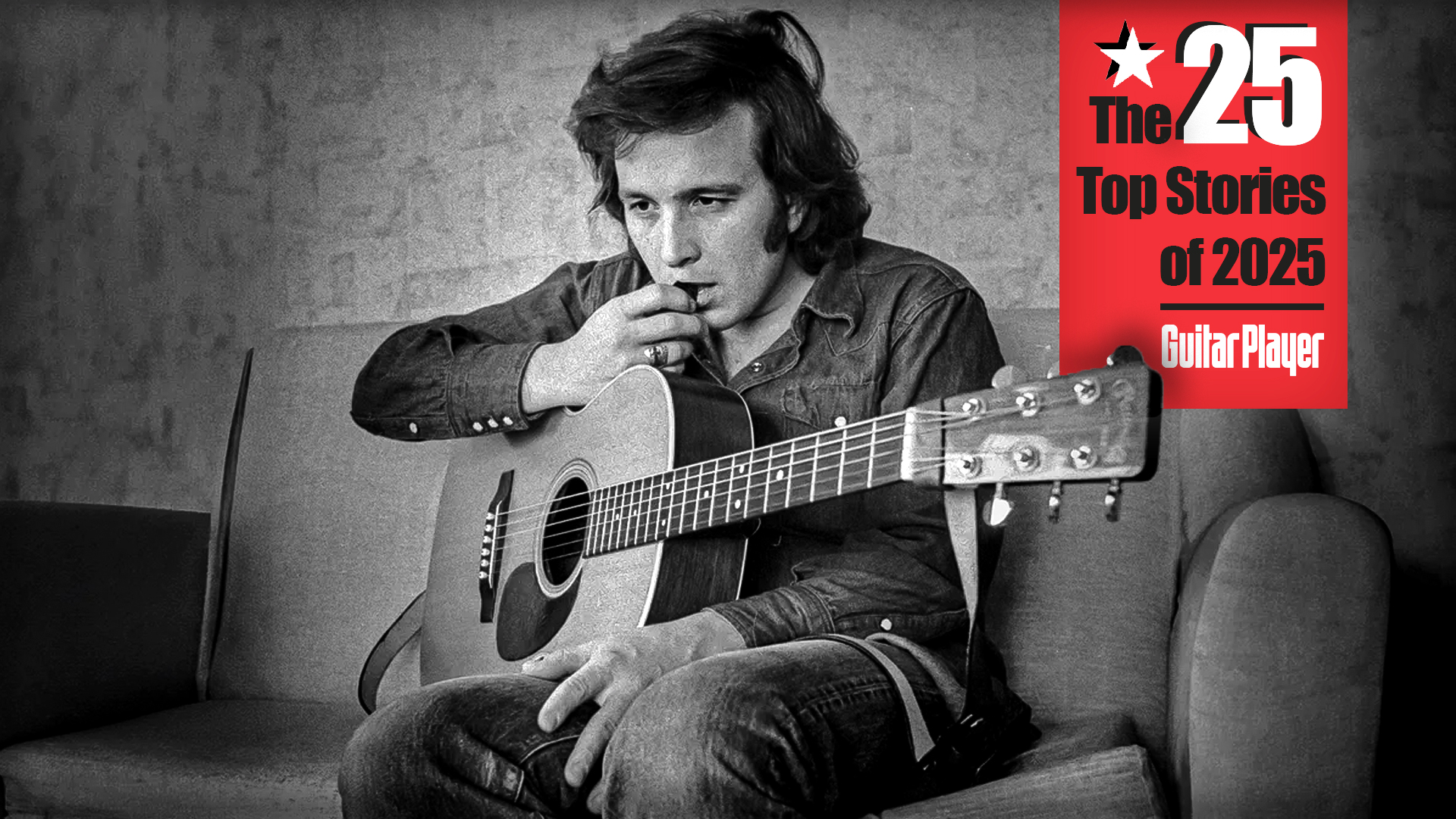“It’s mind-blowing to know I was a huge influence on a new crop of guitar players in the same way that Hendrix, Page, and Beck had an impact on me”: Ace Frehley on the creation of his new solo album, and the '59 Les Paul he'll forever regret selling
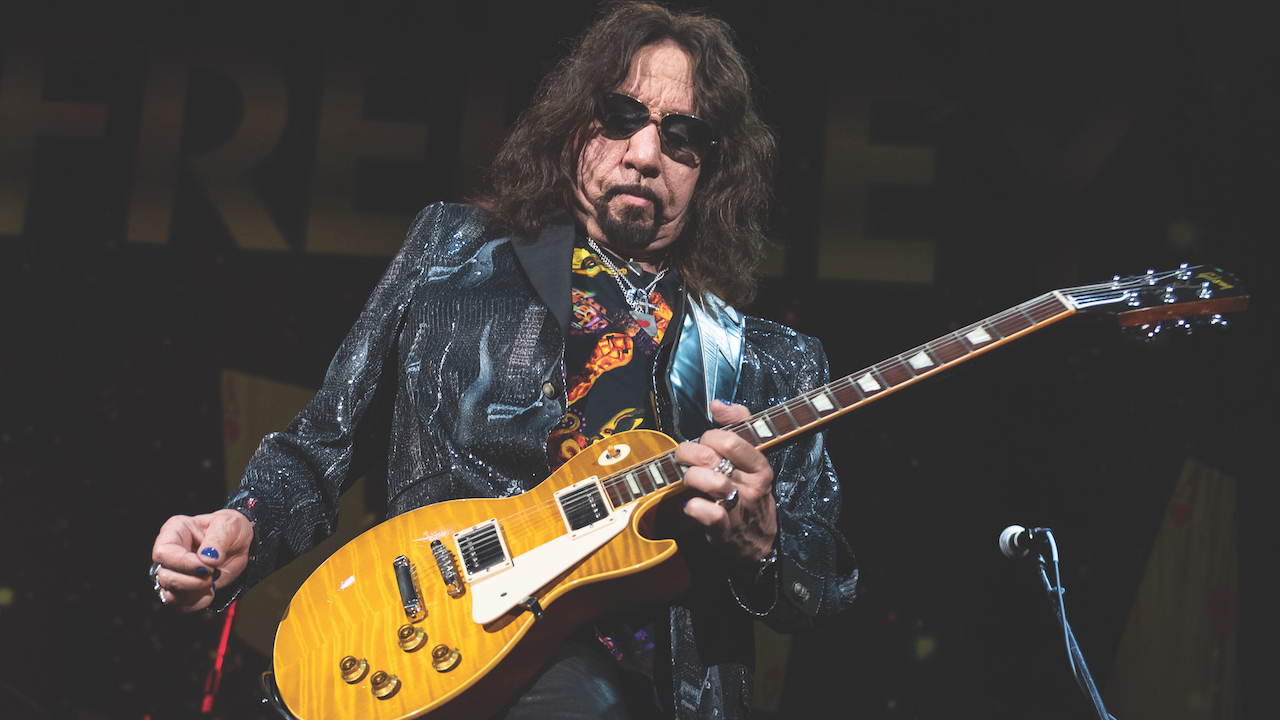
Apparently, even the Space Ace needs an occasional boost. When Ace Frehley began work on his latest solo record, the results, he admits, didn’t exactly put him over the moon.
“I remember coming out of the studio, which is in my basement,” Frehley tells Guitar Player. “And I said to my fiancée, Lara, ‘The stuff that I’m recording is not knocking me out.’”
Fortunately for Frehley, she had a suggestion at the ready: Call Steve Brown, former guitarist for Trixter and a huge Frehley fan. “She had been after me to work with Steve because she was a big fan of Trixter and was good friends with him,” Frehley relates. “So she goes, ‘Do me a favor: Please call Steve Brown, because he’s a great songwriter, great guitar player, great person, and great singer.’”
Frehley took her advice, and the results can now be heard on 10,000 Volts, his new album, co-produced, and, partly, co-written with Brown. The title is an apt one. The record is Frehley's most powerful collection of material in many years, infused with enough sizzling six-string power and kinetic electricity to light up a city. With it, Ace brings new fire to the long solo career he launched in 1982 following his departure from Kiss.
Indeed, things are looking bright for Frehley these days. As an elder statesman of rock guitar, his impact on players of the past 50 years continues to be celebrated by legions of musicians he inspired, including Lenny Kravitz, Stone Gossard, Kim Thayil, John 5, and Tom Morello.
“It’s kind of mind-blowing to know I was a huge influence on a new crop of guitar players in the same way that people like Hendrix, Page, Beck and Townshend had an impact on me,” Frehley observes. “It’s a good feeling and it makes me feel proud.”
Recently, he learned that one of his own idols was an admirer of his guitar work. Last May, Elvis Presley’s stepbrother, Billy Stanley, revealed that the King was floored by Frehley's playing on Let Me Go Rock & Roll, from Kiss’s 1975 breakthrough album, Alive! “That guy’s got some X-rated licks,” Elvis said. “I really like him.”
All the latest guitar news, interviews, lessons, reviews, deals and more, direct to your inbox!
The news made Ace ecstatic. “It made me feel fantastic,” he says. “If Elvis was still alive, I would have invited him to perform on one of my Origins records. Forget about it. I would have been on cloud nine.
“I remember when Kiss started playing arenas, and at least two or three times I recall looking at the marquee – we’d get in the day before and it would say ‘Elvis Presley,’ because they hadn’t changed it yet. And I’d go, ‘Wow, we just missed Elvis. He left the building.’”
10,000 Volts is a huge step up from your previous solo albums of the past 15 to 20 years. When did you begin to work on it?
“I started the album about 13, 14 months ago, and it started off real slow. I had written a couple of song ideas, and I had recorded a couple of songs with [producer] Alex Salzman. One was called ‘Fact or Fiction.’ That title never made it on the record, but the song Up in the Sky came from that. We still had the master that I had recorded with Alex, and me and Steve Brown re-overdubbed it, changed some of the lyrics to make it work, and it became Up in the Sky on the new record. That came out great.”
Steve deserves major props for his role as co-producer and collaborator. As a lifelong Kiss fan, he gets you, and also knows what the fans want you to deliver.
“Steve sent over a song, and one of the lines in it was ‘walking on the moon,’ but it wasn’t at the end of the chorus. So I said, ‘Steve, ‘walking on the moon’ has to end the chorus. Do me a favor – get your ass over to my studio.’ We started rewriting the lyrics to this song, which turned out to be called Walking on the Moon. Steve came up with that opening guitar riff. It’s amazing the way we work together. Whenever I can’t come up with a line, he’ll come up with it.”
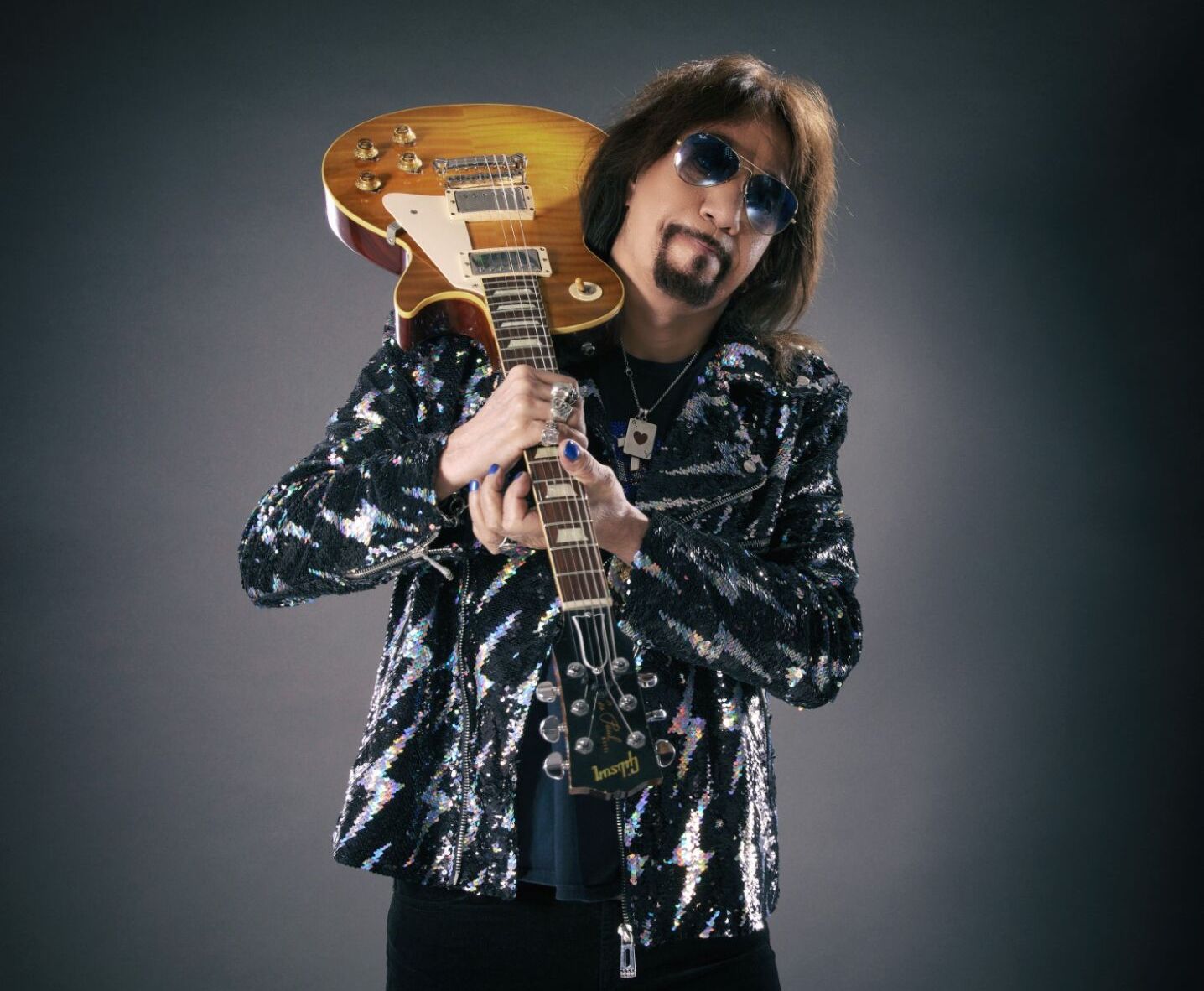
Did Steve’s input shape the more melodic flavor of the album?
“It’s a combination of him and me. I’m a blues-based guitarist. I prefer melodic solos over speed solos. You can’t hum 30 notes in a measure. Some people have said that a lot of my solos are kind of a song within a song and that people can hum my solos.
“I think back to Sunshine of Your Love by Cream and think of the guitar solo that Eric Clapton did. Those kinds of solos get to you. When I record solos these days, I try to empty my mind and not think. As long as I know what key I’m in, I just say, ‘Roll the tape,’ and knock out five or six solos. And then we’ll listen to them and pick the best parts and comp them together using Pro Tools.
Whenever I do meet-and-greets, at least one or two of the guys that I shake hands and take a photo with pull out their AA five-year or 10-year coin and say, ‘Ace, I got sober because of you.’ That means more to me than a million dollars, because it means I saved a life
“I’m still an old-school guy when it comes to recording solos. I like to use an old 50-watt Marshall head. I have a drum room in my studio here in New Jersey, and it’s completely soundproof, so I can blast the Marshalls on 10. You won’t hear it in the control room.
“There’s something about those old Jensen speakers that I think are actually a little better than the Celestions. A lot of solos I record with either a Vox head or a Marshall head. If I’m working with a 4x12 cabinet, I’ll be using a 100-watt Marshall head. But the cabinets are in a sound-proof room and the heads are in the control room so I can adjust the sound. And that’s the way I’ve always recorded, for the most part.”
Having made so many records, how do you balance the expectations of your audience with what you want?
“Well, you can’t be too self-indulgent, but I’m lucky that I really have a second sense of what people want and expect from Ace Frehley based on my previous records.
“I was in an Italian restaurant the other night, and the owner was sitting at our table for half an hour and talking about my guitar playing, showing me videos he shot of me in concert at B.B. King’s on his phone and saying things like, ‘Ace, when you dropped to your knees and played that solo in Black Diamond, oh my God! I was in, like, heaven.’
“After I left the restaurant, I just said to myself, God has been so great to me that I’ve influenced and made so many people happy. Thank God I got sober 17 years ago, because I’d probably be dirt napping right now.
“Whenever I do meet-and-greets, at least one or two of the guys that I shake hands and take a photo with pull out their AA five-year or 10-year coin and say, ‘Ace, I got sober because of you.’ That means more to me than a million dollars, because it means I saved a life.”
There’s a positivity that runs through the lyrics on the new album.
“I’m in a good headspace. If I’m in a good mood, I write good lyrics. Me and Steve are like a marriage made in heaven. That’s why the album came out so good. Sometimes you argue with your producer, bad vibes transpire, and it just affects the music. I love Steve; he’s like my brother. I gave him one of my Strats last night as a Christmas gift.”
Cherry Medicine sports one of your most memorable choruses in many years.
“Cherry Medicine came real easy. Steve pretty much came with the music all ready and I rewrote at least half the lyrics and did the solo. Lara has so many girlfriends. She’ll always bring over three or four of her girlfriends and say, ‘Why don’t you play a couple of your rough mixes of your new album?’ And, invariably, every single girl picked Cherry Medicine as the new single. Maybe they like the line ‘You make me feel better when you’re in your black leather.’” [laughs]
Longtime fans will be pleased you’ve resurrected Back Into My Arms Again, which was circulating as a demo among collectors for years.
“I wrote that song 40 years ago, right after I had quit Kiss for the first time and put together my band with [rhythm guitarist] Richie Scarlet, [bassist] John Regan – God rest his soul – [drummer] Anton Fig, and Arthur Stead on keyboards. Me and Arthur wrote that song, but most of it was written by me. I came up with all that chord work and 90 percent of the lyrics, if not all of them.
“Me and Steve were sitting in his studio, flipping through Ace songs on YouTube, and all of a sudden he stopped and goes, ‘What’s this demo, Back Into My Arms Again?’ I said, ‘That’s something I recorded 40 years ago.’ He listened to it and said, ‘This is a great song. We need to record it for the new album.’
“I always thought it was a good song, but for some reason I never put it on one of my albums. So we recorded it with today’s great production tools, and we made it sound way better than the original demo.”
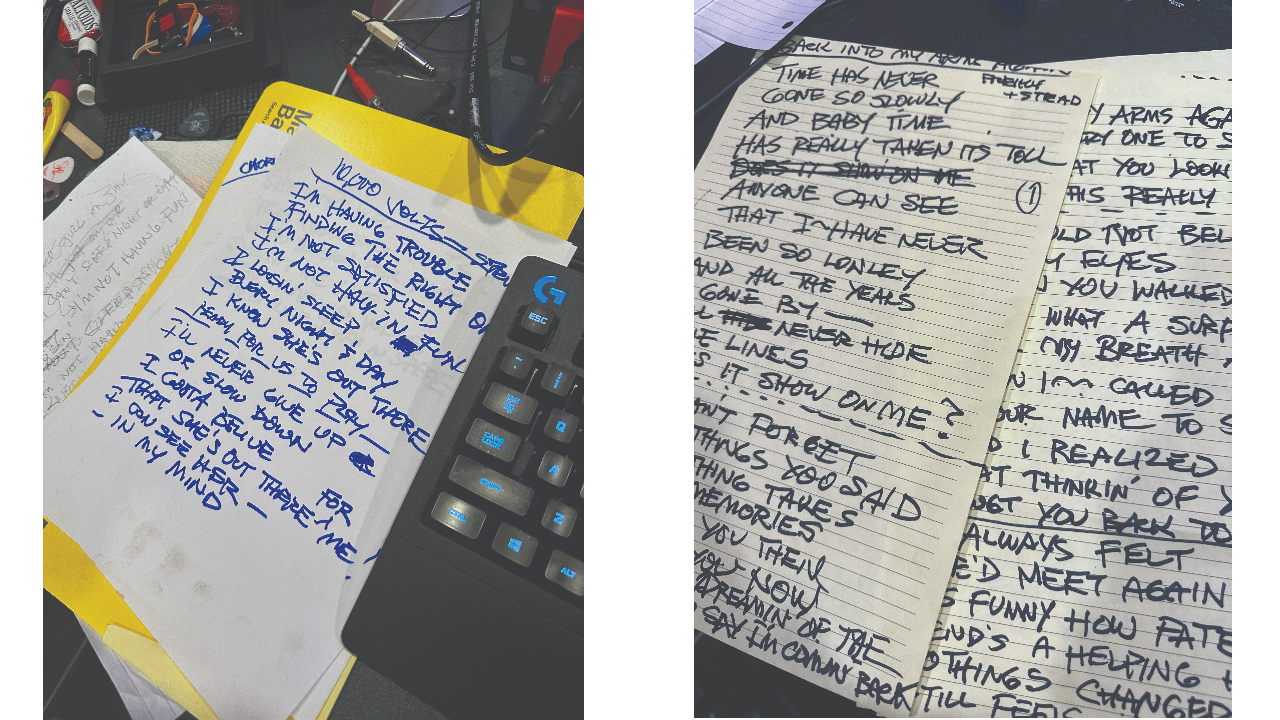
Is there a song that serves as a guitar highlight for you on the record?
“All the songs are my favorites. There’s not one solo on the record that stands out to me as being a favorite. Nothing like Strange Ways by Kiss, which I always refer to as one of my favorite solos of all time, because I did that standing in front of a Marshall stack with one take, and I had earphones on. But the stack was on 10 and I got natural feedback and did those ‘dinosaur bends,’ a phrase that Gene [Simmons] came up with. And that solo came out amazing.
“One of my favorite songs on the album is Cosmic Heart. It’s autobiographical. If you listen to the lyrics, it’s about the way my life has gone. Listen to the second verse which says, ‘I ignored warning signs, and I woke up one day and my soul wasn’t mine,’ and that’s pretty much what happened to me. When I hit bottom with alcohol and drug addiction, I had to hit rehab.
“Thank God it’s been 17 years since I had a drink. I always felt that, prior to getting sober, I wouldn’t be able to be creative without all that junk in my system. It turned out that I’m more creative without it. Once my brain cleared up, I became much more creative. I mean look at what I’ve done in that time since – five, six albums.”
Guitar connoisseur: Ace talks Les Pauls, Epiphone Coronets and the ’59 ’Burst he still regrets selling.
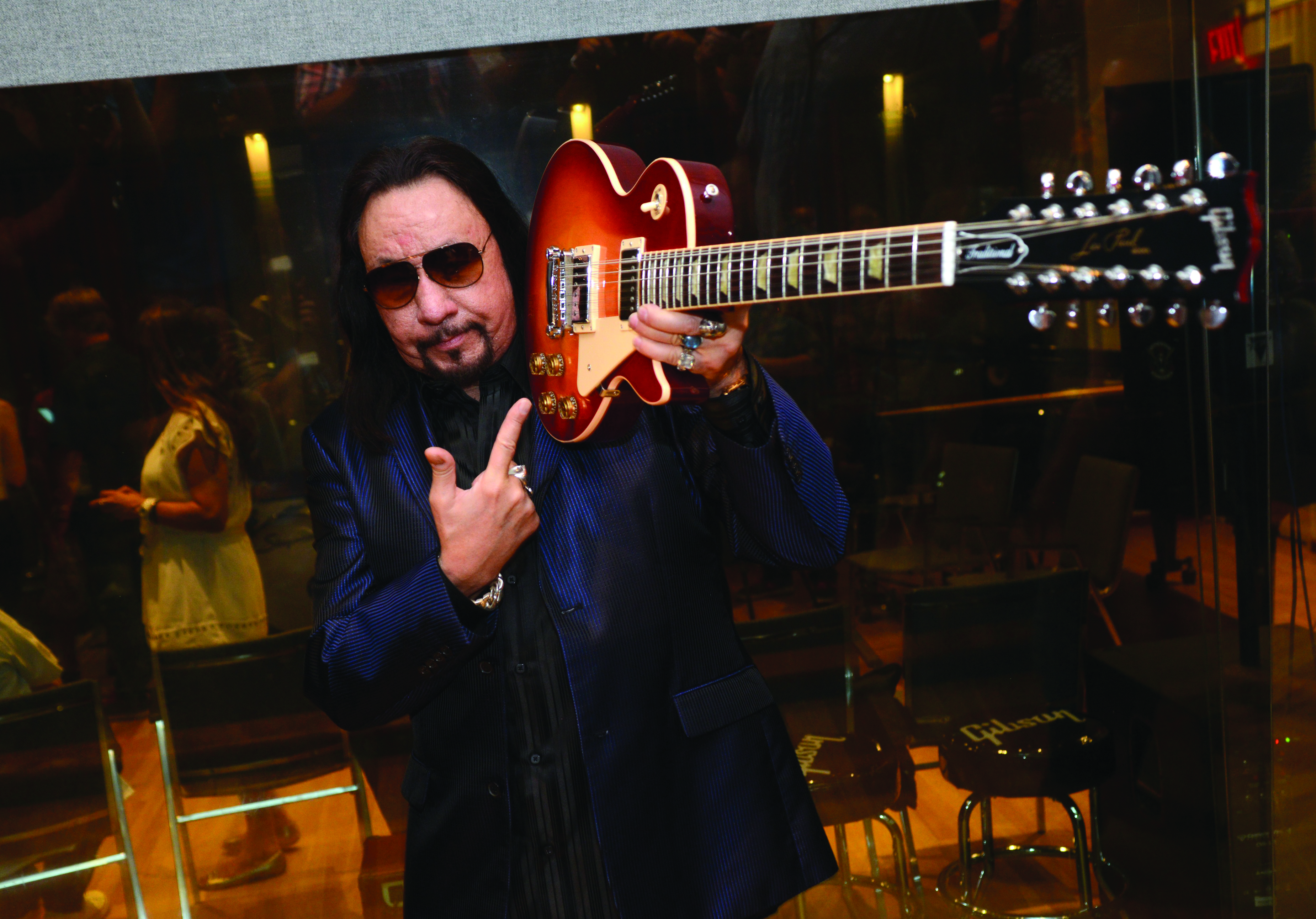
You’ve played all different types of guitars, but you always come back to the Les Paul. What is it about the guitar that makes it perfect? Is it the shape? Is it the feel of the neck?
“All of those things. Are you aware that on the Les Paul, the neck is attached to the body at an angle? It helps sustain and resonance. Les Paul was a genius. You can’t take a Les Paul and lay it flat on a table. There’s an arch. You can take a Strat and lay it flat because it is flat.”
Was there a guitar you had that was unappealing visually but played great?
“My Epiphone Coronet. You’ve seen photographs of the Epiphone before I joined Kiss. It was similar to the one Steve Marriott used in Humble Pie, except his had a thicker body, like a Telecaster. The Coronet was a little thinner and lighter.
“I pulled out the pickup and put a DiMarzio in there, and it sounded great. The neck was similar to a Les Paul, but the look of it wasn’t as appealing as a Les Paul or some flashier guitars. It didn’t look great, but it played very well and sounded great. And it was cheap.”
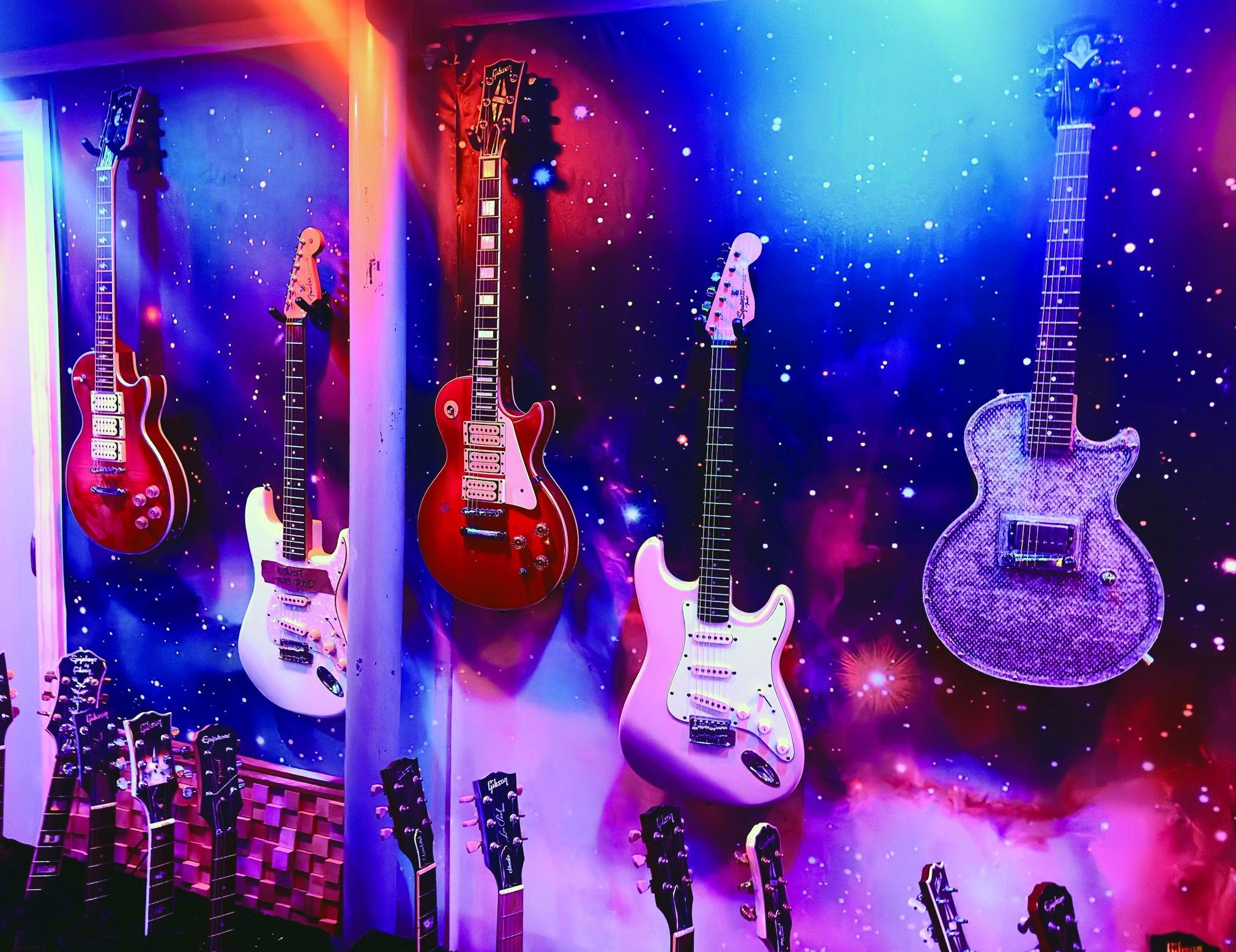
You’re a longtime collector of vintage guitars. When you left Kiss in 1982 you sold off your collection. Any regrets?
“The first time I quit Kiss, I was living in a big mansion in Wilton, Connecticut, and I ran out of money. I was broke. I didn’t realize how much money I was spending. I eventually had to sell the property and my guitars.
“The one guitar that still kills me is the ’59 Les Paul that I used on my 1978 solo album. I bought it for $4,000 and used it on every basic rhythm track and on the solos, for the most part. And then several years went by, and I was with this crazy broad, and we were on our way to Atlantic City, and I didn’t have a lot of cash with me, so I stopped at We Buy Guitars on 48th Street in Manhattan. I hocked the guitar, and they gave me $18,000 for it. They certainly knew it was worth so much more.
“And then I forgot about it, because at the time I was loaded and I wasn’t thinking straight. I never bought it back from them. I know the guy who bought it, and he said the last offer he got for the guitar was $350,000. It looks a lot like the guitar I use onstage now. Gibson got a hold of that guitar from the guy who bought it, and they took high-resolution photographs.
“So when I came out with my ’59 Les Paul, it was pretty much a duplicate of that guitar. I went to the Gibson showroom in Las Vegas at the time, and they had all 75 of the aged models they’d made, and they wanted me to pick the best one. I sat there for two hours playing every one, and I couldn’t make up my mind. So I ended up picking one that I really fell in love with, and they let me take that home.”
- Ace Frehley's 10,000 Volts is available to stream or purchase now.
